Within the public service you’ll find cyber security jobs available at federal agencies, within the military, and independent agencies. Below are agencies and organizations most often hiring for cyber security positions.
Central Intelligence Agency
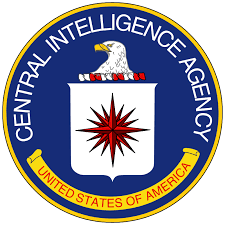 As a Cyber Security Officer for the CIA, you will protect Agency data and network systems through risk analysis, enterprise security solutions, and continual enhancement of our protection profiles. Utilizing sophisticated tools, instrumentation, and knowledge of CIA Information Technology (IT) tradecraft, you will protect our data and IT systems by identifying current threats, mitigating vulnerabilities, and anticipating future challenges. You will also monitor, evaluate and employ new technologies to increase the security of our existing and emerging IT systems.
As a Cyber Security Officer for the CIA, you will protect Agency data and network systems through risk analysis, enterprise security solutions, and continual enhancement of our protection profiles. Utilizing sophisticated tools, instrumentation, and knowledge of CIA Information Technology (IT) tradecraft, you will protect our data and IT systems by identifying current threats, mitigating vulnerabilities, and anticipating future challenges. You will also monitor, evaluate and employ new technologies to increase the security of our existing and emerging IT systems.
Department of Homeland Security
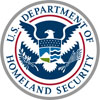 As technology becomes increasingly more sophisticated, the demand for an experienced and qualified workforce to protect our Nation’s networks and information systems has never been higher. The Department of Homeland Security (DHS) is currently recruiting cybersecurity professionals with the following skill sets: Cyber Incident Response; Cyber Risk and Strategic Analysis; Vulnerability Detection and Assessment; Intelligence and Investigation; Networks and Systems Engineering; Digital Forensics and Forensics Analysis; and Software Assurance.
As technology becomes increasingly more sophisticated, the demand for an experienced and qualified workforce to protect our Nation’s networks and information systems has never been higher. The Department of Homeland Security (DHS) is currently recruiting cybersecurity professionals with the following skill sets: Cyber Incident Response; Cyber Risk and Strategic Analysis; Vulnerability Detection and Assessment; Intelligence and Investigation; Networks and Systems Engineering; Digital Forensics and Forensics Analysis; and Software Assurance.
Federal Bureau of Investigation
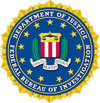 Due to the multi-jurisdictional nature and high level of sophistication of most computer-related crimes, the FBI’s Cyber Division is the lead agency for investigating these incidents. Whether the malicious code originates from a foreign government or company, or was created by a domestic hacker, threats to the digital infrastructure that underpins commerce and other facets of daily life in America represents a danger to national security and public safety. The nation’s most qualified and talented information systems experts are selected for Special Agent jobs in the FBI’s Cyber Division. Supported by a variety of professional staff, these Special Agents safeguard many of the nation’s most important systems like air traffic control, telecommunications networks, financial systems and the safety systems of the nation’s nuclear power plants.
Due to the multi-jurisdictional nature and high level of sophistication of most computer-related crimes, the FBI’s Cyber Division is the lead agency for investigating these incidents. Whether the malicious code originates from a foreign government or company, or was created by a domestic hacker, threats to the digital infrastructure that underpins commerce and other facets of daily life in America represents a danger to national security and public safety. The nation’s most qualified and talented information systems experts are selected for Special Agent jobs in the FBI’s Cyber Division. Supported by a variety of professional staff, these Special Agents safeguard many of the nation’s most important systems like air traffic control, telecommunications networks, financial systems and the safety systems of the nation’s nuclear power plants.
National Security Agency
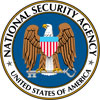 The National Security Agency employs a wide variety of cyber professionals to help protect and defend U.S. government IT systems, and to help exploit the intelligence of adversaries. As our use of technologies grows exponentially, so do our country’s vulnerabilities. Our national security depends on the stability and reliability of our communications infrastructure. The cyber threat to IT and national security systems has never been greater. Cyber professionals at NSA are poised to lead the nation in the protection of our country’s national interests in cyberspace.
The National Security Agency employs a wide variety of cyber professionals to help protect and defend U.S. government IT systems, and to help exploit the intelligence of adversaries. As our use of technologies grows exponentially, so do our country’s vulnerabilities. Our national security depends on the stability and reliability of our communications infrastructure. The cyber threat to IT and national security systems has never been greater. Cyber professionals at NSA are poised to lead the nation in the protection of our country’s national interests in cyberspace.
U.S. Air Force
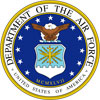 The Air Force relies heavily on advanced computer and software systems, so it is paramount to keep those systems safe. It’s the job of Cyber Systems Operations specialists to design, install and support our systems to ensure they operate properly and remain secure from outside intrusion. These experts enhance USAF capabilities and provide it with the best and most secure systems. Additionally, responsible for preventing, detecting and repelling cyber attacks, Cyber Surety specialists ensure the security of computer networks and online communications. From programming to hardware, these experts keep USAF systems and information safe.
The Air Force relies heavily on advanced computer and software systems, so it is paramount to keep those systems safe. It’s the job of Cyber Systems Operations specialists to design, install and support our systems to ensure they operate properly and remain secure from outside intrusion. These experts enhance USAF capabilities and provide it with the best and most secure systems. Additionally, responsible for preventing, detecting and repelling cyber attacks, Cyber Surety specialists ensure the security of computer networks and online communications. From programming to hardware, these experts keep USAF systems and information safe.
U.S. Army
 The 19,000 Soldiers and civilians at Army Cyber Command operate in a global footprint to achieve the command’s three strategic priorities: aggressively operate and defend the DOD information network; deliver effects against our adversaries; and design, build and deliver integrated capabilities for the future fight.
The 19,000 Soldiers and civilians at Army Cyber Command operate in a global footprint to achieve the command’s three strategic priorities: aggressively operate and defend the DOD information network; deliver effects against our adversaries; and design, build and deliver integrated capabilities for the future fight.
U.S. Marine Corps
 The Marines have a brand-new set of military occupational specialties for cyberwarfare Marines. The service has announced the creation of the 17XX MOS community, calling it part of a larger effort to establish cyber dominance on the battlefields of the future. The field will include seven new military occupational specialties, according to a Marine Corps administrative message released today. That range of MOSs creates positions for enlisted Marines, officers, and warrant officers, ensuring that troops can spend an entire career in the specialty.
The Marines have a brand-new set of military occupational specialties for cyberwarfare Marines. The service has announced the creation of the 17XX MOS community, calling it part of a larger effort to establish cyber dominance on the battlefields of the future. The field will include seven new military occupational specialties, according to a Marine Corps administrative message released today. That range of MOSs creates positions for enlisted Marines, officers, and warrant officers, ensuring that troops can spend an entire career in the specialty.
U.S. Navy
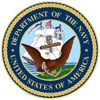 Complex computer networks, tactical systems they control, and vital infrastructures they support are all under attack by enemies seeking to steal information or sabotage capabilities. Cyber Warfare Engineering (CWE) Officers are the highly technical computer scientists and computer engineers who: (1) Provide defense against attacks and deliver tactical advantages; (2) Develop tools and techniques in the information environment that ensure situational awareness; and (3) Serve as a key part of the Information Dominance Corps in its mission to gain a deep understanding of the inner workings of adversaries and developing unmatched knowledge of the battle space during wartime.
Complex computer networks, tactical systems they control, and vital infrastructures they support are all under attack by enemies seeking to steal information or sabotage capabilities. Cyber Warfare Engineering (CWE) Officers are the highly technical computer scientists and computer engineers who: (1) Provide defense against attacks and deliver tactical advantages; (2) Develop tools and techniques in the information environment that ensure situational awareness; and (3) Serve as a key part of the Information Dominance Corps in its mission to gain a deep understanding of the inner workings of adversaries and developing unmatched knowledge of the battle space during wartime.
Defense Information Systems Agency
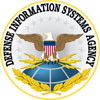 An abundance of data and expansion into the cloud and mobile environments present unique challenges for defensive cyber operations (DCO). DISA stood up a consolidated DCO Division in the summer of 2017. The division plans, transforms, coordinates, synchronizes, and directs the security and defense of the agency’s enterprise infrastructure and the delivery of DISA Cyber Security Services to the Department of Defense.
An abundance of data and expansion into the cloud and mobile environments present unique challenges for defensive cyber operations (DCO). DISA stood up a consolidated DCO Division in the summer of 2017. The division plans, transforms, coordinates, synchronizes, and directs the security and defense of the agency’s enterprise infrastructure and the delivery of DISA Cyber Security Services to the Department of Defense.
Federal Reserve
 Bank regulators have a bigger role to play in preventing cybercrime and should focus more on connecting financial institutions with national security agencies. Cybersecurity is the biggest risk facing the financial sector, and the Federal Reserve says that, “We have a variety of resources in the government that we can appropriately and usefully bring that are really separate from the financial regulatory complex.”
Bank regulators have a bigger role to play in preventing cybercrime and should focus more on connecting financial institutions with national security agencies. Cybersecurity is the biggest risk facing the financial sector, and the Federal Reserve says that, “We have a variety of resources in the government that we can appropriately and usefully bring that are really separate from the financial regulatory complex.”
U.S. Department of Agriculture
 Cyber Security secures the business of USDA by managing the risks of cyber threats and vulnerabilities. Cyber Security protects USDA agencies as they deliver IT services to their stakeholders and the American people. That means Cyber Security’s primary purpose is making sure USDA organizations and their employees have the knowledge and tools they need to fulfill their responsibilities and to create an environment of trust for their customers.
Cyber Security secures the business of USDA by managing the risks of cyber threats and vulnerabilities. Cyber Security protects USDA agencies as they deliver IT services to their stakeholders and the American people. That means Cyber Security’s primary purpose is making sure USDA organizations and their employees have the knowledge and tools they need to fulfill their responsibilities and to create an environment of trust for their customers.